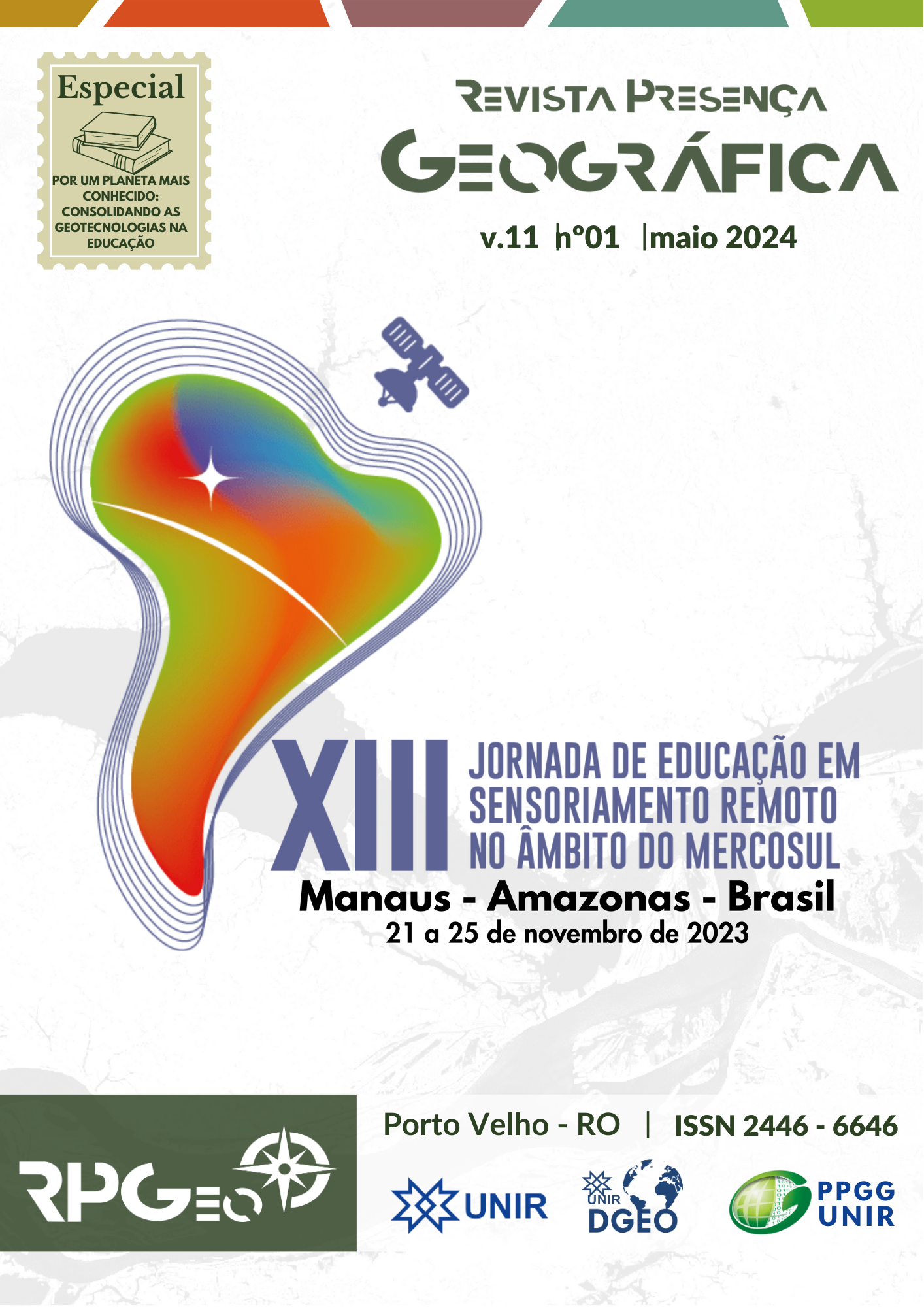THE USE OF GOOGLE EARTH PRO AS A TOOL TO SUPPORT THE TEACHING OF HUMAN GEOGRAPHY. CASE STUDY: UKRAINE WAR VS. RUSSIA
Abstract
The Ukrainian war against Russia has brought great destruction to many Ukrainian cities. One of the ways to understand this reality is to analyze the changes in the landscape using satellite images. It is now possible to identify the destruction in the Ukrainian city of Mariupol using Google Earth Pro images. Given this reality, the aim of this study was to develop a proposal for an activity based on the use of Google Earth Pro images as a teaching resource to be used in secondary school classes. To develop the work, the teacher will first have to hold a classroom discussion to contextualize the Ukrainian-Russian War, then, preferably using the school's computer lab, Google Earth Pro and some of its tools will be presented. The class will then be divided into small groups, where the students will begin the process of exploring and comparing the landscape linked to the study area through a multi-temporal analysis of the images. In the end, it is hoped that the students will be able to construct knowledge in a dynamic, effective and satisfactory way.
Downloads
Published
Issue
Section
License
Copyright (c) 2024 Jairo Rodrigues Silva, Gabriel Domiciano Costa Lara, Igor Alexander Santos, Cecília Félix Andrade Silva

This work is licensed under a Creative Commons Attribution-NonCommercial-NoDerivatives 4.0 International License.
This work is licensed under Creative Commons Attribution-NonCommercial-NoDerivatives 4.0 Internacional license.
Authors who publish in this journal agree to the following terms:
- Authors retain the copyright and grant the journal the right to first publication, with the work simultane ously licensed under Creative Commons Attribution-NonCommercial-NoDerivatives 4.0 Internacional License that allows the sharing of the work with acknowledgment of authorship and initial publication in this journal.
- Authors are authorized to assume additional contracts separately, for non-exclusive distribution of the version of the work published in this journal (ex, publishing in institutional repository or as a book chapter), with acknowledgment of authorship and initial publication in this journal.
- Authors are allowed and encouraged to publish and distribute their work online (ex.: in institutional repositories or on their personal page) at any point before or during the editorial process, as this can generate productive changes, as well as increase the impact and the citation of the published work (See The Free Acess Policy).







